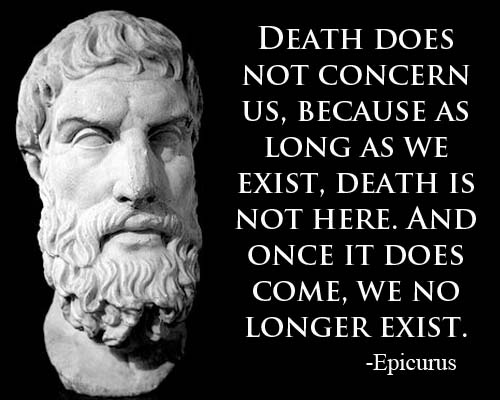Dear Classical Wisdom Reader,
One of the best things about living in South America is that you can’t get anything you want when you want it.
You have to plan international trips to buy your electronics, organize Christmas and birthdays months and months in advance to ensure presents arrive in time and you only get to eat certain fruits and vegetables when they are seasonal.
Okay, so the first two examples aren’t particularly fun, but enjoying fresh produce at that exact moment of seasonality is a true delight.
For instance, just last week I saw a post that the much sought after Tomato reliquias– just harvested–could be purchased directly from the countryside for delivery in the city. Practicing my best castellaño, I made the arrangement for 1 kilo of heirloom tomatoes, 2 kilos of cherry tomatoes, a liter of tomato pulp and a jar of tomato chutney to be delivered to my house.
I had the pleasure of waiting an entire year for a tomato reliquia. The first bite of the carefully washed and sliced edible berry was all I hoped it to be. It was pure contentment; juicy umami happiness.
Best of all, it wasn’t an expensive or elaborate joy. The whole crate of red delight was only $12. It was a moment to be present, to be Epicurean.
Of course long time lovers of the ancients know that Epicureanism isn’t about food (even though in this case, it was). It’s just another modern word that has far departed from the ancient philosophy. So in honor of Epicurus, and the beautiful tomatoes that inspired such thinking, let's discuss what is the pursuit of happiness, according to Epicurus...
All the best,
Anya Leonard
Founder and Director
Classical Wisdom
P.S. Fun fact: The specific name for tomato, lycopersicum, means 'wolf peach' and originated with the famed Roman physician Galen (129 – c. 216 AD), who used it to denote a plant that has never been identified. Members can learn the extraordinarily story of Galen’s life and legacy here:
Epicurus and The Pursuit of Happiness
By Lydia Serrant
We’ve all been there. Fear, anxiety, depression, existential dread…these are common side effects of the human condition and part of life experience.
No matter where you have found yourself in history or what may be happening in global society, anxiety, depression and other mental and emotional challenges present themselves to us all at some point in our journey through life.
Greek philosopher Epicurus (341 – 270 BC) recognized the suffering within himself and his fellow men and women. He established the Epicurean school of philosophy that promoted the Art of Simple Living.
Epicureanism went on to become one of the most influential philosophies in ancient times. It is known mostly for the Forty Principle Doctrines – a guide for how to live the happiest possible life.
However, if reading through 40 doctrines seems too overwhelming, or you’re just short on time, the Tetrapharmakos a.k.a ‘The Four-Part Remedy’ is a great place for any budding Epicureanist or happiness seeker to start!
You Have Nothing to Fear from God
In the Hellenistic period, the gods were all-seeing, all-powerful entities that made puppets of mankind. It was widely believed that if one angered the gods, it would result in torture and punishment during life and after death.
Epicurus, in contrast, did not believe that humans could do anything to anger the gods. He argued that they were too mighty to be troubled by the actions of mortal men. Instead, Epicurus believed the gods to be role models for humanity and argued that one should try to reach their level of happiness and self-empowerment.
Epicurus’ idea was that good should be done for the good itself, not because of the threat of punishment. He saw guilt as an obstacle to true happiness.
If one wishes to achieve a calm and serene mind, then actions that incur guilt should be avoided at all costs.
For Epicurus, the gods exist not to be feared, but emulated.
Don’t Waste Time Worrying About Death
Death. There is nothing more final. It has long been argued that the burden of humanity is to live with the knowledge that we will one day succumb to death. The end of our lives is one of the biggest anxieties for us all, and for many, this fear can limit one’s ability to live a full and happy life.
Epicurus did not believe in an afterlife. But whether you believe in an afterlife or not, his advice about death is useful:
“Death means nothing to us…when we exist death is not yet present, and when death is present, we do not exist.”
Good point, Epicurus! Whatever you believe in, death brings to us a different state of consciousness. There is no way of knowing how we will perceive death, as no one has come back to tell us what happens.
For those who are worried about missing out on future events after death, the Epicureans say that’s the same as worrying about all the events you missed out on before you were born.
At the end of the day, all we can do is live a full life in the present. Everything else is beyond our control.
What is Good for You is Easy to Get
The Epicureans consider humans to have very basic needs, and say it is our desires that cause us the greatest suffering.
To survive and do well, all a human needs is food, shelter and interpersonal relationships, all of which are relatively easy to get. Simple foods that give nutrition and energy are much easier to come by than a Michelin star meal.
It is our desire for more that causes needless anxiety. This is especially relevant to today’s consumerist society, constantly bombarded with advertisements that tell us we are nothing without the finest house or the newest gadgets.
What is Terrible is Easy to Endure
How’s that?
After much observation of nature, the Epicureans concluded the following about pain and suffering:
Pain and suffering are either brief or enduring
Pain and suffering are either mild or chronic
Pain that is both chronic and enduring is the rarest kind
So, terrible things may not be a walk in the park, but they may not be as bad as you may think, or at least last as long as you fear. The Epicurean logic is that if your pain is terrible then it won’t last for very long, and if it does last long it will be mild or you will grow accustomed to it.
This is perhaps one of the most controversial doctrines of the Tetrapharmakos. But it does have a point: we live in a world that has limits. All humans, animals and conditions have a limit, and the same can be said for the nature of suffering. It is a better use of energy to understand it than it is to worry about it, because at the end of the day, suffering cannot be avoided. Many things occur that are outside of our control. However, if one understands the nature of suffering, one may better avoid unnecessary pain, or at the very least, be able to accept when pain and suffering unexpectedly arise.









## The transformative power of love and compassion
Love and compassion are not just warm fuzzy feelings; they are essential ingredients for human well-being and societal harmony. They act as antidotes to the negativity that can breed within individuals and between communities.
### The corrosive nature of hate
Hateful interactions, on the other hand, act like a virus, infecting individuals and communities with negativity. They breed resentment, fuel division, and erode the very fabric of society. When people feel threatened or attacked, they naturally retreat into defensiveness, further exacerbating the divide.
### The healing touch of listening
However, even in the face of hate, love and compassion can work wonders. When a loving individual takes the time to truly listen to the cares and concerns of someone consumed by hate, a powerful shift can occur. This act of empathetic listening begins to dismantle the "enemy image" that both parties may hold of each other. It creates a bridge of understanding, paving the way for dialogue and potential reconciliation.
### Two loving individuals: a catalyst for growth
The presence of two loving individuals in communication is crucial for fostering growth. Love, in this context, is not blind acceptance but a deep respect for the other person's humanity, even when disagreeing with their views. It allows for open and honest communication, where both parties feel safe to express themselves without fear of judgment. This kind of interaction can challenge preconceived notions, broaden perspectives, and ultimately lead to personal and mutual growth.
### Beyond labels: recognizing our shared humanity
Labeling people as "us" versus "them" is a dangerous form of "othering." It dehumanizes individuals and groups, making it easier to justify discrimination and even violence against them. A thriving society is built on the foundation of recognizing our shared humanity. We are all individuals with unique experiences, hopes, and fears, but we are also bound together by our common human experience. Acknowledging this interconnectedness is essential for building bridges of understanding and fostering a sense of belonging for all.
In conclusion, love and compassion are not just idealistic concepts; they are practical tools for building a better world. They have the power to heal individuals, mend communities, and create a society where everyone feels valued and respected. By choosing love over hate, understanding over judgment, and unity over division, we can create a future where humanity thrives.
"There is no way of knowing how we will perceive death, as no one has come back to tell us what happens." Not so - there was one who "came back" - and if we do not accept the credible witnesses to Jesus' resurrection - then to be consistent we can be certain about no other fact of history as well.